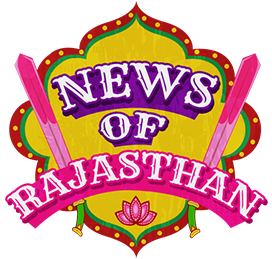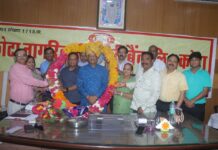
Umaid Hospital To Introduce Non-Pneumatic Anti-Shock Garments to Prevent the Reoccurrence of 2011 Tragedy.

Post-delivery haemorrhage, infection caused by intravenous (IV) fluid injections and excessive bloodshed within 24 hours of childbirth has been causing 30% mother mortalities in the state. To top it, pernicious anaemia affecting 70% of pregnant mothers is a major concern for the doctors, as there are lesser chances of survival if they happen to lose blood during childbirth. Somewhat similar incident occurred in 2011 when the death of 16 women at Jodhpur’s Umaid Hospital exposed the pathetic administration of previous government in Rajasthan.
To prevent similar incidents in future, the Hospital staff will distribute 20 units of NASG (non-pneumatic anti-shock garments) to periphery health centres in urban and rural areas. The idea is to bring down the mother mortality rate.
NASG: Main Highlights
NASG or Non-Pneumatic Anti-Shock Garment is a Velco-neoprene suit almost resembling a wetsuit. When an expectant mother is in shock, vital organs get deprived of blood since it gets accumulated in the lower regions, but NASG reverses this shock by returning blood to brain, lungs and heart. Thus, it can treat and resuscitate shock and stabilize obstetric haemorrhage in the patient.
Umaid Hospital: Before
A Tragedy that Caused Authorities to Improve the Paralyzed Public Health System
In 2011, 16 women between 21 to 34 years of age died within a fortnight due to anaemia and intravenous infection owing to unhygienic conditions and poor physical state of women patients. Thus, making a mockery of the NRHM (National Rural Health Mission). The irony is that incident took place at Rajasthan’s one of the oldest and largest government hospitals. Seeing that Rajasthan had the third highest maternal mortality rate in India at that time (338 deaths per 1,000,000 births), it was necessary to revamp the health care system.

Umaid Hospital: Before
Hospital Administration is Hopeful that NASGs will Save the Day
According to Superintendent Ranjana Desai, the NASGs can help reduce the postpartum haemorrhage (PPR) cases that usually occur due to delayed hospitalization. As soon as the bleeding starts, first 1 to 2 hours are the ‘life-saving’ golden period. Sometimes, when the patient is hospitalized late, she may suffer from excessive blood loss. This is where NASGs play a role. When wrapped around the patient, they extend the golden period, thus preventing blood loss.
Recently, the hospital staff had requested Rotary Clubs to dispatch 20 such kits to most of the state hospitals. They’re also conducting a workshop to train nurses and doctors at peripheral centres. Hopefully these efforts will help save lots of lives in future.









